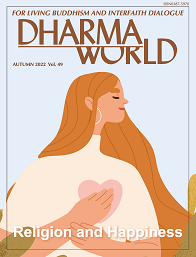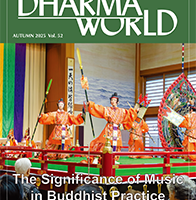 Autumn 2022, Volume 49(PDF)
Autumn 2022, Volume 49(PDF)
Religion and Happiness
According to the 2019 Pew Research Center survey, in the United States and more than two dozen other countries, people who actively practice religion are relatively happier than those who do not or those who have no religious affiliation at all.
Other findings show, however, that in economically developed, democratic countries, where personal freedom is highly valued, religiosity is much less tied to happiness than to personal independence. Other research suggests that people of some religions are happier and more satisfied than people who belong to other religions.
On the face of it, a primary goal of religious practice would naturally seem to be happiness, but there are many arguments against happiness being the first priority of religion. As some schools of psychology hold that happiness is a result of self-actualization or the creation of meaning in one’s life, religion may provide an objective or give meaning to people’s lives, but not necessarily happiness. The content of the definition of “happiness” is also open to debate, and may be defined differently across cultures and religious traditions.
Does religion make people happy? Is happiness the goal of religion? How are religion and personal freedom correlated? How does the subjective perception of happiness, which is an individual’s emotions or feelings, correlate with an objective evaluation of well-being? Does the meaning or the objective that religion provides always bring happiness to its adherents?
On the basis of these questions, the feature pages explore relations between religion and happiness.























































































